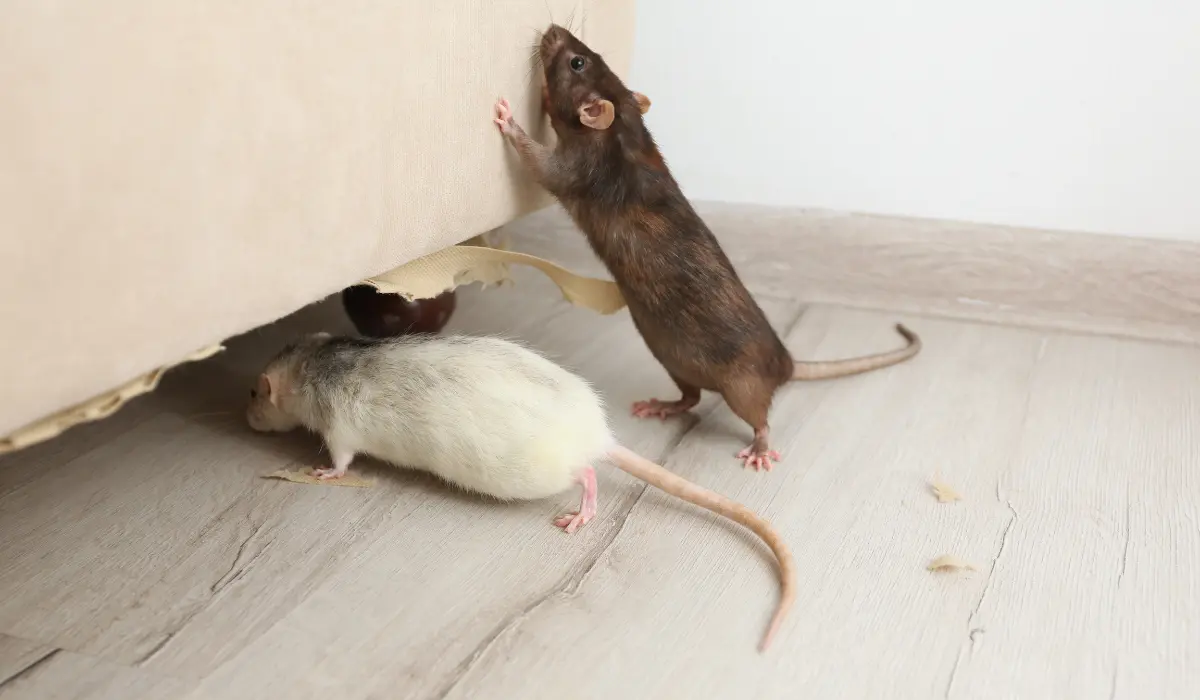In the realm of rental properties, maintaining a pest-free environment is crucial. With the advent of technology, AI for rodent control in rentals is proving to be a groundbreaking solution that property owners and managers can't afford to ignore. As we delve into this topic, we will explore how AI is transforming pest management and why its implementation is not just a trend but a necessity.

The Rise of AI in Pest Management
The use of Artificial Intelligence (AI) in various industries is no longer a novelty. From healthcare to finance, AI is making significant strides, and now it's making waves in rodent control. This technology offers a sophisticated approach to identifying, tracking, and eliminating rodent infestations in rental properties. By utilizing AI-driven sensors and data analytics, property managers can detect rodent activity in real-time, allowing for swift and effective intervention.
How AI Works in Rodent Control
AI systems for rodent control typically involve a network of smart traps equipped with sensors. These sensors are capable of detecting movements and sounds characteristic of rodents. Once detected, the data is transmitted to a central system where AI algorithms analyze it to confirm the presence of rodents. This process not only ensures accuracy but also reduces the likelihood of false alarms. The system can then alert property managers to take immediate action, thus preventing potential damage and maintaining tenant satisfaction.
Moreover, AI can learn and adapt over time. It can identify patterns in rodent behavior, helping property managers implement preventive measures that are more effective than traditional methods. This proactive approach is what sets AI apart from conventional pest control techniques.
Benefits of AI-Driven Rodent Control in Rentals
The integration of AI into rodent control offers numerous benefits for rental property stakeholders. Firstly, it enhances efficiency by automating the detection and reporting processes. This means property managers can focus on other critical aspects of property management while trusting that their pest control system is actively working in the background.
Secondly, AI provides significant cost savings. Traditional pest control often involves regular inspections and treatments, which can be costly over time. With AI, interventions are only required when there is confirmed rodent activity, reducing unnecessary expenditures.
Additionally, AI systems contribute to environmental sustainability. They minimize the use of harmful chemicals by targeting specific infestations rather than applying broad-spectrum pesticides. This precision not only protects the environment but also ensures the safety of tenants and pets.
Challenges and Considerations
While the benefits are clear, there are challenges to consider when implementing AI for rodent control in rentals. The initial investment in AI technology can be substantial. Property owners need to weigh these costs against the long-term savings and benefits offered by AI-driven systems.
Another consideration is the potential for technical issues. Like any technology, AI systems can experience malfunctions or require maintenance. It's essential for property managers to work with reputable service providers who offer robust support and maintenance services.
Furthermore, integrating AI technology requires a level of technical proficiency. Training staff to understand and manage these systems is crucial for maximizing their effectiveness.
Building Trust with AI
Adopting AI for rodent control also plays a pivotal role in building tenant trust. Tenants are more likely to renew leases and recommend properties when they know that management is proactive about maintaining a safe and comfortable living environment. In this sense, AI is not just a tool for pest management but a means of enhancing tenant relations and reputation management.
Conclusion: The Future of Pest Control
As we look to the future, the role of AI in rodent control will likely expand. The technology is set to become more sophisticated, with the potential for integration with other smart home systems, providing even greater control and convenience for property managers and tenants alike.
For those interested in staying ahead of the curve, exploring the implementation of AI for rodent control in rentals is a step towards modernizing property management. For more insights on pest prevention, check out this article on pest prevention tips.

FAQ
How does AI detect rodents?
AI detects rodents using sensors that identify movements and sounds associated with rodent activity. The data is analyzed by AI algorithms to confirm the presence of rodents.
What are the cost implications of using AI for rodent control?
While the initial investment may be high, AI systems can lead to long-term cost savings by reducing the need for regular inspections and treatments, as interventions are only necessary when rodent activity is confirmed.
Can AI systems malfunction?
Like any technology, AI systems can experience technical issues. It is important to work with reliable service providers who offer robust support and maintenance to address any potential malfunctions.
